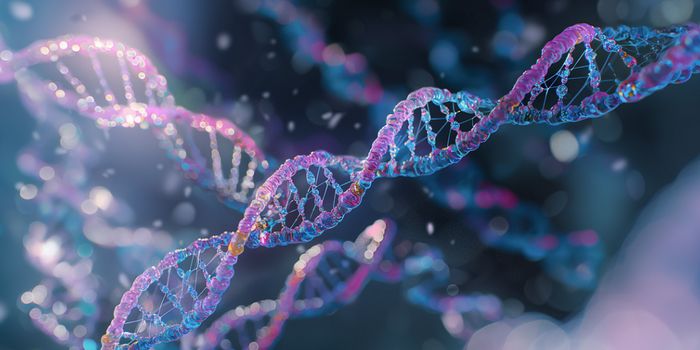Bugs on the Brain - Gut Microbes Affect Neurodegeneration
The human gut microbiome exerts a significant influence on many aspects of our physiology. While it may not be surprising that gut microbes can affect gut health, studies have also suggested that the gut microbiome can play a role in neurodegenerative diseases. What is less clear is whether those brain diseases are changing the microbes in the gut, or if gut microbes influence the health of the brain. New research has suggested that gut microbes generate molecules, such as short-chain fatty acids, that can exacerbate neurodegenerative conditions. The findings have been reported in Science.
"We gave young mice antibiotics for just a week, and we saw a permanent change in their gut microbiomes, their immune responses, and how much neurodegeneration related to a protein called tau they experienced with age," said senior study author David M. Holtzman, MD, a Professor at Washington University School of Medicine in St. Louis. "What's exciting is that manipulating the gut microbiome could be a way to have an effect on the brain without putting anything directly into the brain."
In this work, the researchers used a mouse model in which the animal are predisposed to brain damage that causes cognitive impairment. These mice express a mutated form of a protein called tau in the brain; tau tangles have been linked to neurodegenerative diseases including Alzheimer's and Parkinson's. In these mice, the mutant tau protein accumulates, as in disease, and causes the neurons of the brain to atrophy before the mice are 40 weeks old. These mice also carried a human APOE gene variant, APOE4, which is known to significantly increase the risk of Alzheimer's.
When the researchers also ensured that these mice did not develop gut microbiomes by raising the germ-free mice in sterile conditions from birth, their brains acquired far less damage by 40 weeks compared to the same mice that were raised to have normal gut microbiomes.
If the mouse model with a microbiome was also given antibiotics when they were two weeks old, the composition of the bacterial species in their microbiomes was permanently altered. In male mice, this antibiotic-induced microbiome change was accompanied by a reduction in the brain damage that is typically seen at 40 weeks in these mice. Male mice that did not carry APOE4 also had more neuroprotection, potentially because the APOE4 variant may render some of the protection ineffective, suggested the researchers. Antibiotics did not affect neurodenegeration in female mice.
While researchers know that immune cells in male and female brains don't respond to stimuli in the same way, the researchers don't yet know what these findings mean for patients with neurodegeneration, noted Holtzman.
Additional work revealed that three specific short-chain fatty acids, generated by metabolic processes in some gut bacteria, are linked to neurodegeneration. There were only low levels of these fatty acids in mice with antibiotic-exposed gut microbiomes, and they were undetectable in mice lacking gut microbiomes - the mice with less brain damage.
The short-chain fatty acids may be triggering neurodegeneration by activating immune cells in circulation, which leads to immune cells in the brain to harm brain tissue. When mice lacking microbiomes consumed the three short-chain fatty acids, immune cells in the mouse brains became more reactive, and there were more signs of brain damage linked to tau.
The researchers are exploring whether modifications to the gut microbiome are a way to treat neurodegeneration.
In an unrelated study, scientists have also developed a new method for assessing interactions between the microbiome and the brain, which will help reveal more about this complex relationship and its health consequences.









